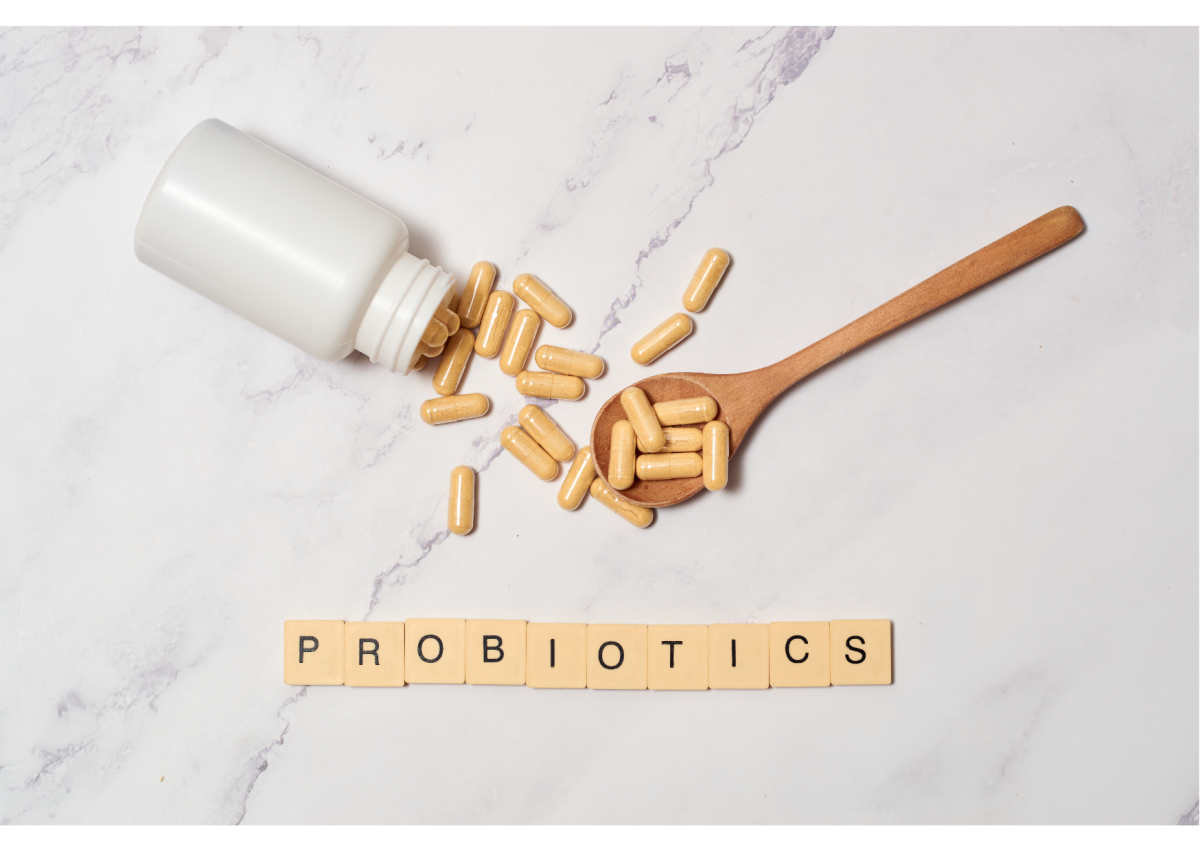What is the best probiotic for anxiety? 3 x research-backed options
- Supplements
Are you searching for the best probiotic for anxiety? You are not alone; many people with IBS are exploring the brain-gut axis to manage anxiety.
What does it mean when people say they have a gut feeling? It is common to experience anxiety as a result of your gut changes.
New research within mental health studies suggests a probiotic can help IBS and anxiety. The use of psychobiotics is evolving, so read on to explore the best probiotic for anxiety.
This blog will reveal the best bacterial strains that may help manage anxiety found in research to impact the brain-gut axis.
Please note the research in this area is not strong enough to suggest using a probiotic instead of anxiety medication.
If you have anxiety, please speak to your doctor, take medications and/or work with a therapist as advised.
For people suffering from IBS and anxiety – check out IBS FAQ – common questions answered or read about the symptoms and causes of IBS here.

The Brain-Gut Axis
The brain-gut axis is a communication highway. It refers to the complex, bidirectional communication network that exists between the central nervous system (brain and spinal cord) and the enteric nervous system (the gut).
This axis involves various hormonal, neural, and immune pathways that allow the gut and brain to exchange information (1).
This connection is vital for understanding how the best probiotic for anxiety can help.
Any disruption to the brain-gut axis can lead to gastrointestinal symptoms, such as bloating, diarrhea, or constipation.
Check out this article for instant bloating relief or what is constipation and how you can treat it.
What is Anxiety?
Anxiety is a mental health condition characterized by persistent worry, fear, or apprehension, often manifesting physically with symptoms like a racing heart or trembling (2).
As the brain-gut axis plays a role in how anxiety manifests and is managed, finding the best probiotic for anxiety is worth exploring. You may also experience gastrointestinal symptoms.
For more information on mental health conditions and IBS – read Stress, anxiety, depression and IBS: Managing Mental Health to manage IBS.
What is a probiotic?
A probiotic is a live microorganism, typically bacteria or yeast, that offers health benefits when consumed appropriately.
Probiotics are often called “good” or “friendly” bacteria because they help maintain a balanced gut flora and offer various other health advantages.
Different probiotics are likely to contain different bacterial strains, outlined in the manufacturer’s label.
The type of bacterial strain needed may differ from person to person (3). Probiotics can be purchased online or in some health stores.
What is a psychobiotic?
You may have come across the term psychobiotics. A psychobiotic is a specific type of probiotic that, when taken in adequate amounts, has a positive effect on mental health through its action on the gut-brain axis.
Psychobiotics are gaining attention for their potential in treating conditions like anxiety, depression, and even stress (4).
It is important to note that probiotics should not be used instead of medications or physiological therapy, though.
What is the best probiotic for anxiety?
Recent studies highlight probiotics containing Lactobacillus and Bifidobacterium (or a blend of both) may reduce anxiety symptoms. Specifically:
- Lactobacillus Rhamnosus
- Bifidobacterium Longum
- Lactobacillus plantarum
These bacteria are thought to work by supporting the brain-gut axis, reduce brain inflammation, and produce fewer stress hormones (5).
For example, one study showed that a multi-strain probiotic taken daily, could reduce cortisol levels (a stress hormone) and improve scores in a depression and anxiety scoring scale (7).
Further studies have found that a probiotic may reduce stress levels in healthy individuals. Because stress impacts anxiety, this finding may show a potential role in probiotics reducing anxiety symptoms (8, 9).

How to take a probiotic
To ensure safety and effectiveness, take the probiotic daily as stated in the manufacturer’s instructions. Take probiotics up to 30 minutes before a meal for maximum benefits.
Try one probiotic brand at a time for at least four weeks each, but they can be taken for up to 12 weeks.
They should be discontinued if there is no improvement after that (4). If you do feel some benefits, the full effectiveness could take up to 6 months.
It is essential to consider that probiotics are not ‘one size fits all,’ and every person and their gut microbiota may respond differently to probiotics. These probiotic strains may also provide other benefits to gastrointestinal symptoms.
Probiotics can enhance the management of mental health conditions, such as anxiety. Currently, there is limited evidence to promote their use singly, and they cannot be a replacement for treatment.
Summary
The best probiotic for anxiety is still a subject of ongoing research, but promising strains like Lactobacillus and Bifidobacterium have shown potential in supporting the brain-gut axis.
These strains are particularly beneficial for those with IBS, a condition often coexisting with anxiety.
Probiotic brands do vary in strain composition, daily usage, and cost. Finding a probiotic that works for you is vital. Always consult your doctor for further advice about managing anxiety using medications and psychological therapies first.
As psychobiotics evolve, they offer a promising avenue for managing mental health conditions like anxiety. While probiotics can complement treatment, they should not replace professional medical advice.